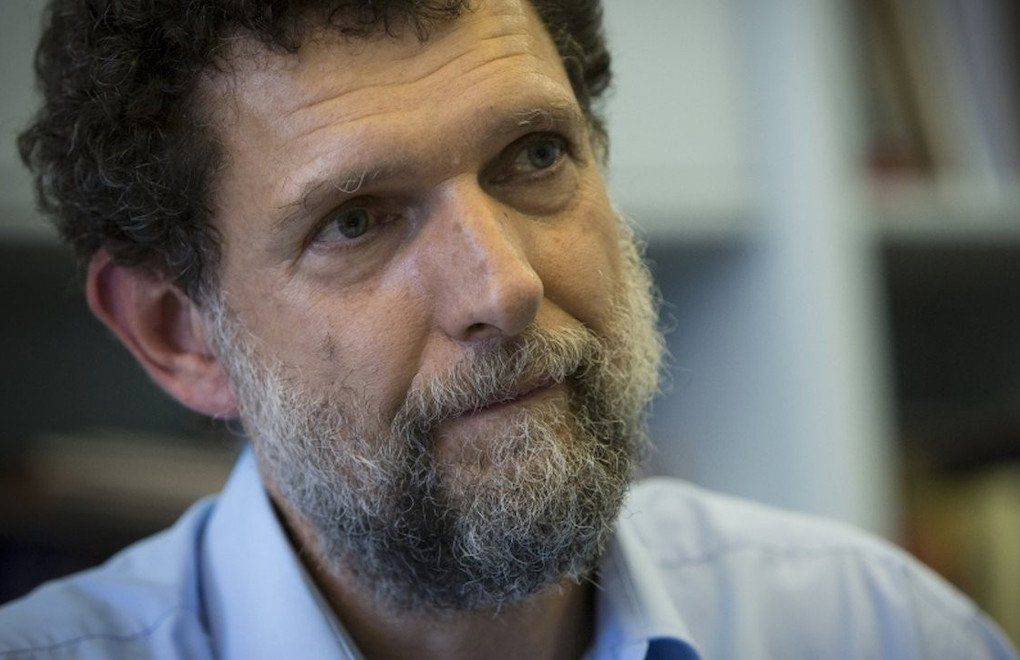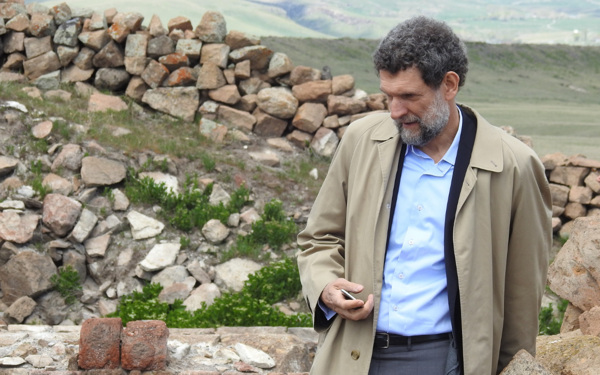Today marks the seventh year of the imprisonment of businessperson and philanthropist Osman Kavala.
Kavala was detained on Nov. 1, 2017, upon returning to İstanbul from Antep based on allegations that he had organized and financed the 2013 Gezi Park protests, which drew millions across Turkey. He was subsequently remanded in custody.
Although Kavala was acquitted in the Gezi Feb 2020, he remained in prison, as a new charge of “espionage” related to the same investigation led to his continued detention.
The Court of Cassation, the top appeals court, overturned Kavala’s acquittal in Jan 2021, leading to a retrial. In April 2022, Kavala was sentenced to aggravated life imprisonment for attempting to overthrow the government by organizing the protests. Seven other defendants were sentenced to 18 years in prison for aiding Kavala.
Marking his seventh year in detention, Kavala issued a statement through his attorneys, describing the legal proceedings against him as "entirely violating the presumption of innocence." Gezi Park remaining a public park provides him the only solace, he noted. The Gezi protests initially began in opposition to the planned demolition of the park in İstanbul’s Taksim Square to reconstruct an Ottoman-era military barracks as a shopping and entertainment complex. Within days, the movement transformed into a nationwide wave of anti-government demonstrations.
Full text of Kavala’s statement:
In 2019, the European Court of Human Rights (ECtHR) ruled that there was no evidence indicating my involvement in any criminal activity. Following the acquittals in the Gezi trial for the same reason, political influence over the judiciary intensified. The laws were manipulated to bypass the ECtHR’s decision and overturn the acquittals. An espionage charge was fabricated, entirely inconsistent with the legal definition of this crime.
This charge was also politically exploited; the practices of enemy law, which disregard human rights and the lives of those deemed “other”, were reinforced. In this way, although it was known that I had no involvement in any act of violence, I was given the heaviest sentence; and in the same vein, four other individuals arrested in the Gezi trial were sentenced to 18 years in prison. When the Court of Cassation upheld these sentences, I realized that judicial authorities believe that they have the power to hand out punishments to those they find undesirable. Even though they know those people did not commit any crime.
I believe that the prevalence of an understanding in the judiciary that does not value human life also reflects an erosion concerning fundamental ethical values, which is seen in many similar cases that have incited public outrage.
I have spent most of my life I could have actively lived after turning 60 in prison. I could not share my life with my wife or spend those years with my mother and loved ones. The civil society work that I believe fosters a culture of peace and reconciliation, which we have been pursuing for years, has been obstructed.
To maintain my sense of citizenship while in prison, I sought to fulfill my responsibility to warn the public by sharing my observations about the injustices I experienced or witnessed.
It is a source of consolation for me that Gezi Park, which introduced me to trees from the earliest memories of my life and taught me the importance of sharing public spaces with others, continues to be a park enjoyed by citizens of all ages and backgrounds.
However, the true consolation for me will be seeing a progress toward the rule of law in my country. I believe that this will happen and that I will be able to feel that I am truly free.
(VK)






